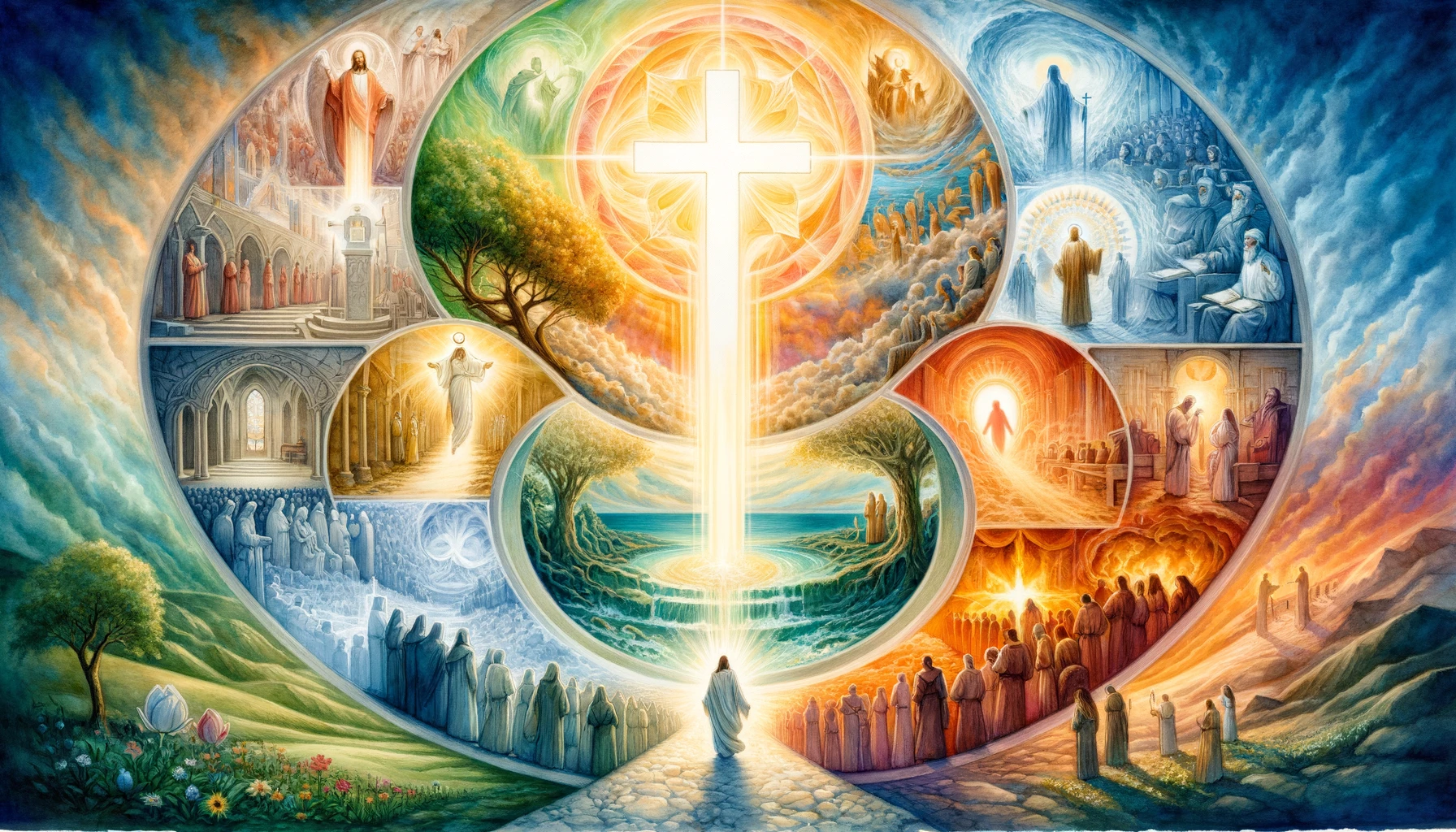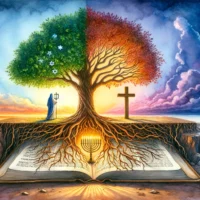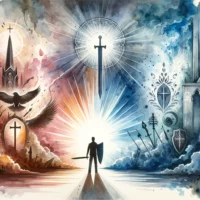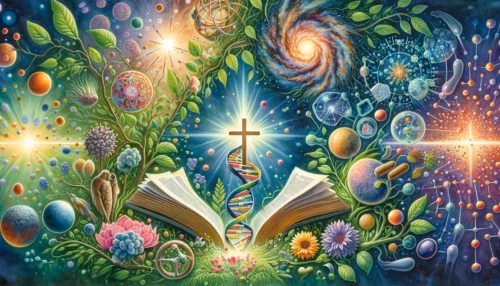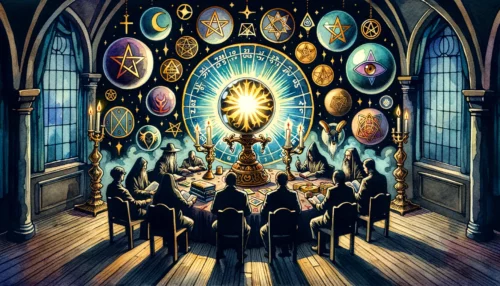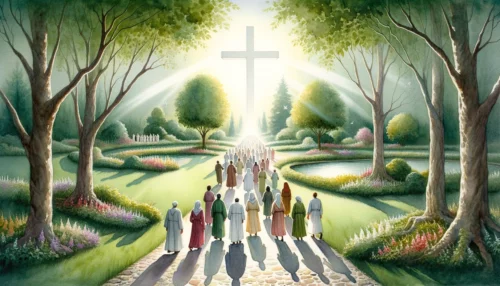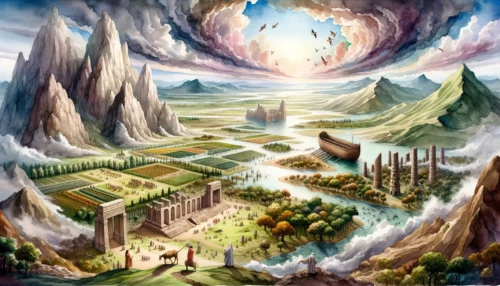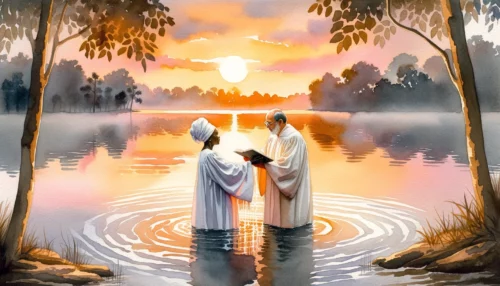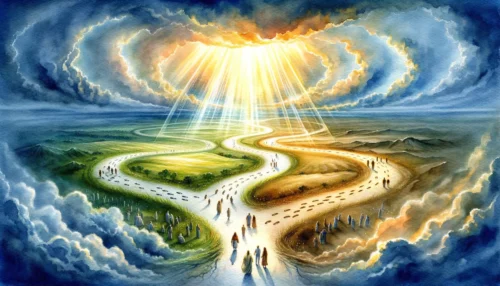The sacrifice of God’s Son is a cornerstone of Christian faith, embodying the depth of divine love and the extent of His grace towards humanity. This act not only reconciles us with God but also opens a pathway to eternal life. But what prompts such an extraordinary sacrifice? How does this singular event bridge the vast gap between humanity and the divine, and what does it mean for our daily lives and eternal destiny? These questions invite us to ponder the profound implications of God’s love, justice, and mercy as manifested through the sacrifice of Jesus Christ.
The Nature of Divine Love
Divine love is unconditional, sacrificial, and wholly other-centered. This type of love, agape in Greek, is exemplified supremely in the act of God sacrificing His Son for humanity’s redemption. Unlike human love, which often seeks something in return, divine love is given freely and abundantly, expecting nothing back. It’s this love that lays the foundation for understanding why God would choose to make such a profound sacrifice.
God’s love is not passive. It actively seeks the welfare of its creation, humanity, even to the point of entering into the very condition of those it aims to save. The incarnation—God becoming man in the person of Jesus Christ—demonstrates this love in action. Jesus’s life, teaching, death, and resurrection are the ultimate manifestation of divine love, showing God’s willingness to go to the greatest lengths to restore the broken relationship between Himself and humanity (John 3:16).
The sacrifice of Jesus is not merely a historical event but a theological cornerstone that reveals the nature of God’s love. It’s a love that bears the cost of humanity’s rebellion, sin, and separation from God. The crucifixion of Jesus is the point at which divine justice and love meet. Sin demands justice—consequences for wrongdoing—but God’s love provides a substitute for us, bearing the penalty that was rightfully ours (Romans 3:25-26).
This sacrificial act also illuminates the depth of God’s commitment to His creation. It’s a declaration that no price is too high for the restoration of the relationship between God and humanity. This love transcends human understanding and merits, offering forgiveness and reconciliation freely to all who would accept it.
Divine love, characterized by its unconditional, sacrificial nature, is central to the Christian understanding of why God chose to sacrifice His Son. This love seeks the ultimate good of humanity, offering itself in the person of Jesus Christ to bear the penalty of sin and restore the broken relationship between God and humanity. It’s a love that goes beyond human comprehension, demonstrating God’s profound commitment to His creation and inviting us to live in response to this incredible act of love.
The Necessity of Sacrifice for Redemption
The concept of sacrifice is pivotal to understanding the mechanism of redemption. The necessity of sacrifice for redemption is rooted in the nature of sin and its consequences. Sin, defined as rebellion against God, disrupts the perfect harmony intended between the Creator and His creation. According to the Bible, the wages of sin is death, signifying not just physical demise but eternal separation from God (Romans 6:23). This grim reality underscores the need for a means of reconciliation, which is fulfilled in the sacrifice of Jesus Christ.
The sacrificial system in the Old Testament foreshadows the ultimate sacrifice of Jesus. In these ancient practices, animals were offered to atone for the sins of the people, symbolizing the need for sin to be covered and paid for. However, these sacrifices were not sufficient to permanently remove sin; they needed to be repeated regularly (Hebrews 10:1-4). This repetition underscored the need for a perfect, once-for-all sacrifice that could fully reconcile humanity with God.
Enter Jesus Christ, whose life, death, and resurrection fulfill this requirement perfectly. His sacrifice is necessary because it alone addresses the root problem of sin and its consequences. By willingly offering Himself, Jesus becomes the perfect substitute, taking upon Himself the punishment that was due to humanity. This act of sacrifice satisfies the demands of divine justice, allowing God to remain just while justifying those who have faith in Jesus (Romans 3:26).
The sacrifice of Jesus also inaugurates a new covenant between God and humanity. Under this new arrangement, the basis of forgiveness and restoration is no longer dependent on the repeated sacrifices of animals but on the once-and-for-all sacrifice of Christ. This covenant is characterized by grace, wherein the unearned favor of God is extended to sinners, offering them forgiveness and eternal life through faith in Jesus (Hebrews 9:15).
This transformative sacrifice has profound implications for believers. It not only provides the basis for their reconciliation with God but also empowers them to live new lives. Freed from the penalty and power of sin, believers are called to live in a manner that reflects their restored relationship with God, embodying the values of the Kingdom of God in the here and now (2 Corinthians 5:15).
The necessity of sacrifice for redemption is a core tenet of Christianity, addressing the profound problem of sin and its eternal consequences. The sacrificial death of Jesus Christ is central to this concept, offering a once-for-all solution that satisfies divine justice and initiates a new covenant of grace. Through this sacrifice, believers are reconciled to God, empowered to live transformed lives that bear witness to the grace and truth of the gospel.
The Impact of the Sacrifice on Humanity and Creation
The sacrifice of Jesus Christ holds transformative power for both humanity and creation, marking a pivotal moment in Christian theology. This act of divine love and justice has far-reaching implications, not only reconciling individuals with God but also heralding the restoration of all creation. In essence, the cross of Christ is where the fractured relationship between God and His creation begins its journey towards ultimate restoration (Colossians 1:19-20).
For humanity, the impact of Jesus’s sacrifice is profound and personal. It offers forgiveness of sins, liberation from guilt and shame, and the promise of eternal life with God. This gift of salvation is available to all who believe in Jesus and accept Him as their Lord and Savior (John 3:16). The sacrifice also inaugurates a new identity for believers as children of God, called to live in a way that reflects their transformed status. This identity is not earned by good deeds but is a direct result of grace, empowering Christians to live in freedom and purpose (Galatians 4:4-7).
Beyond individual transformation, the sacrifice of Christ also initiates a new community among believers. The church, as the body of Christ, is called to embody the values of the Kingdom of God, demonstrating love, justice, and mercy in a world marked by brokenness and division. This community is a foretaste of the fully restored creation that is to come, tasked with proclaiming the gospel and living out its implications in the here and now (Ephesians 2:19-22).
The broader cosmic impact of Jesus’s sacrifice speaks to the redemption and renewal of all creation. The Christian narrative anticipates a future where heaven and earth are fully reconciled, where death, pain, and suffering are no more, and where God dwells with His people in a restored and perfected world (Revelation 21:1-4). This eschatological vision motivates believers to care for creation and work towards justice and peace, reflecting the hope of the gospel in every sphere of life.
The sacrifice of Jesus Christ is central to the Christian faith, offering redemption to humanity and the promise of restoration for all creation. It provides individuals with forgiveness, a new identity, and the hope of eternal life, while also calling them into a community that reflects the values of God’s Kingdom. Beyond its impact on individuals and the church, Christ’s sacrifice is the catalyst for the ultimate renewal of creation, inspiring believers to live in hope and work towards a world that mirrors the coming fullness of God’s restoration.
The Power of Sacrificial Love
The sacrifice of Jesus Christ stands as the bedrock of Christian faith, manifesting God’s unparalleled love and justice. It bridges the chasm between humanity and the Divine, offering redemption and ushering in a renewed creation. This foundational event not only secures eternal life for believers but also empowers them to live lives marked by grace, purpose, and hope. Through the lens of this sacrifice, we are invited to embody the values of God’s Kingdom, contributing to the restoration of the world while anticipating the full realization of God’s promise of renewal.
Key takeaways:
- The nature of divine love is sacrificial and unconditional, highlighting the depth of God’s commitment to humanity’s redemption.
- The necessity of Christ’s sacrifice underpins the Christian understanding of redemption, providing a once-for-all solution to the problem of sin.
- The impact of this sacrifice extends beyond individual salvation, encompassing the restoration of all creation and inspiring believers to live out the Kingdom’s values.
A Call to Contemplate:
- How does the understanding of divine love as sacrificial and unconditional shape your daily life?
- In what ways can you participate in the restoration of creation, reflecting the hope of Christ’s sacrifice?
- How does the promise of eternal life influence your priorities and actions in the present?
Let this message inspire you to live in the light of Christ’s sacrifice, embodying the love, grace, and hope it offers. As bearers of this profound truth, may we strive to reflect the beauty of God’s Kingdom in every aspect of our lives, working tirelessly towards a world that fully embraces His redemptive plan.




